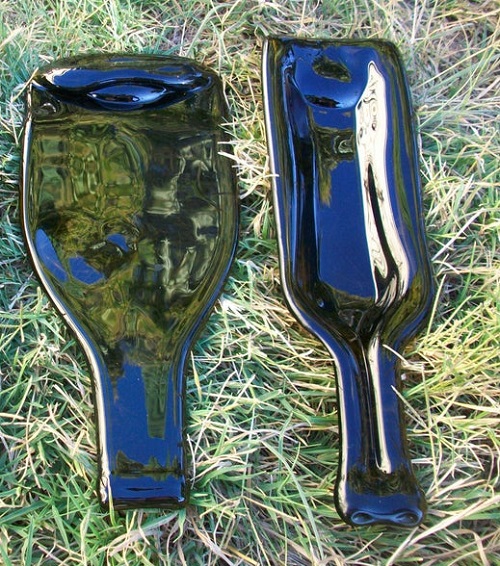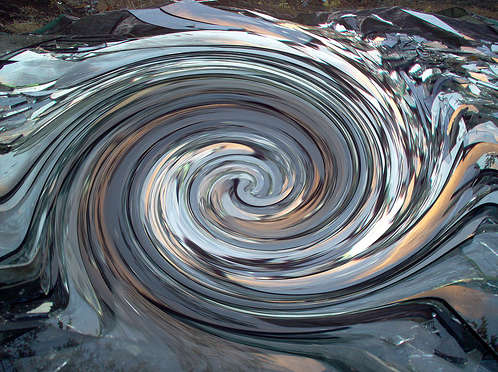FWP:
Just when the verse seems poised to invoke a straightforward parallel between the inner world and the outer world-- it doesn't. Wine is one of Ghalib's great images, and he refers to it constantly-- its color, its life-giving powers, its blood-like qualities,its bubbles, its intoxication. But here, he's given it a quality that, in the real world, it doesn't have. No matter how 'active' or 'violent' wine is, nobody has ever seen it melt the wine-flagon. So the wine and wine-flagon in the second line become entirely metaphorical, entirely dependent for their behavior on the qualities suggested for the heart in the first line. This hyperbolic claim about wine emphasizes the uniqueness and supreme power of the 'heat of thought', which in actual fact is so much more deadly, so much more of a container-melter, than real wine.
This verse about the irresistible power of andeshah can't fail to evoke the supreme one of its kind: {5,4}.
In English, we 'wash our hands of' something, an idiom that I couldn't help using in the translation above. And it's indeed close to kisī chīz se hāth dhonā . But while both idioms have the sense of 'give up on', 'lose hope for', the English one also contains a note of both choice and strong disapproval: people declare that they 'wash their hands of' something or someone they have decided to reject. In Urdu, the sense is simply one of resignation to impending loss. In this verse, dhonā also has of course an affinity with the āb -- which can mean, among many other things, 'water'-- of āb-gīnah . (For more on wine vessels, see {28,1}.)
Note for grammar fans: are we to read pighlā
jāʾe hai (an archaic form of pighlā jātā hai
) as a passive made from an intransitive verb (very rare, but not unheard-of),
thus meaning 'is [habitually] caused to be melted'; or are we to take it as an idiomatic use of the past participle with the huʾā
colloquially omitted, thus meaning something like 'goes on being in a state
of having melted'? The passive seems more suitable here, but both would be formally identical. Another problematical case: {153,7}.


Nazm:
By 'the heat of thought' is meant that effect that changes the state of the heart; and he has given the simile of the 'activity/violence of wine' for it, and the simile of the 'wine-flagon' for the heart. (164)
== Nazm page 164